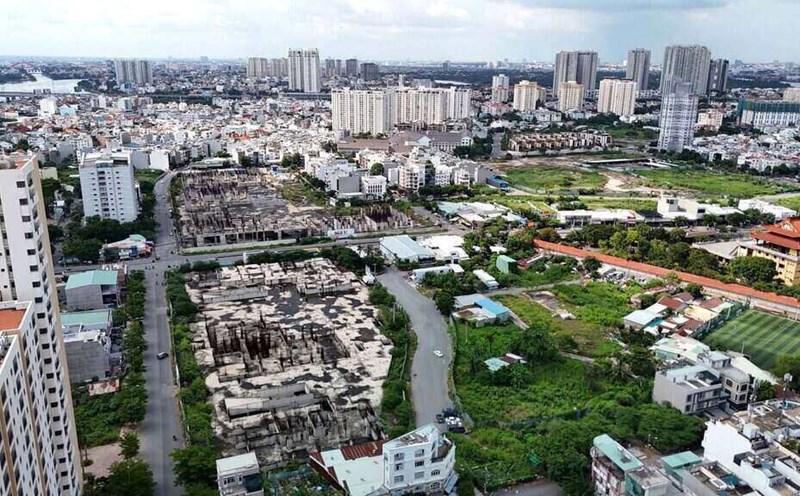"Brain-weighing" with land rent
After issuing the land price list, Ho Chi Minh City is building the land rental rate for non-agricultural land and commercial service land.
In December 2024, the 10th People's Council of Ho Chi Minh City also officially passed a resolution to give opinions on the percentage (%) for calculating land rental prices, the percentage (%) collected for land for underground construction (not the underground part of above-ground construction) and the percentage (%) collected for land with water surface as the basis for calculating land rental fees in Ho Chi Minh City.
Accordingly, depending on whether the land for lease is agricultural, non-agricultural, commercial or service land, the percentage for calculating the land rental price ranges from 0.25 - 1.5%.
However, in the opinion of many businesses and experts, this rate is still not really reasonable. Many businesses that rent land and pay annually seem to be facing difficulties, facing the risk of failing their business investment plans, having their profits eroded, even making losses when land rental costs increase suddenly, and it is difficult to calculate business efficiency...
A wood products manufacturing company that is planning to lease land to build a factory in Thu Duc City said that it had to temporarily suspend the project due to a sudden increase in land rental costs. The land price in this area was previously around VND7 million/m2, but according to the new land price list, it has increased to VND84 million/m2. This will cause costs to increase significantly, affecting the company's business operations. The owner of this company suggested that the city should calculate a suitable coefficient, not increase it too much to avoid greatly affecting the input costs of the company.
Risk of losing competitive advantage
Mr. Le Hoang Chau, Chairman of the Ho Chi Minh City Real Estate Association, analyzed that, based on the practical situation of the city, the regulation on the percentage of calculating the annual land rental price as the city plans to apply is from 0.25 to 1.5%, which has some shortcomings that can have adverse impacts on investment attraction activities and the sustainable development of the Ho Chi Minh City real estate market.
Especially the real estate rental market, including land rental activities in industrial parks, export processing zones, high-tech zones, industrial clusters or medical facilities, educational land, sports land (including golf course land, zoological garden land, Safari wildlife park land...).
Mr. Chau gave an example of a "typical land plot" at a location with non-agricultural production and business land that is not commercial or service land on Street No. 1, Linh Trung Ward, Thu Duc City.
Before 2022, applying Decision 50/2014/QD-UBND, Road No. 1, Linh Trung Ward, Thu Duc District (old) in Area 3, the land rental rate (%) for non-agricultural production and business purposes was applied at 1.3% of the land price of the land price list issued at that time together with the price of non-agricultural production and business land that is not commercial or service land. The rental price at that time was calculated at 52,416 VND/m2.
During the period of 2023 and the first 10 months of 2024, with the price of non-agricultural production and business land that is not commercial or service land in this area adjusted to increase to 2.52 million VND/m2 along with the application of an additional land use coefficient of 2.6 times, the annual land rental price is determined to be 85,176 VND/m2.
And now, when applying the new land price list, the land price in this area is increased to 19.9 million VND/m2 and according to the new calculation, it will be 0.75% of the land price of the adjusted land price list, so the annual land rental price will be 149,250 VND/m2.
This shows that if a business rents land for industrial production in this area, within just 3 years from 2023-2025, the business will have its land rent adjusted up 2 times.
"This will be a significant financial pressure for businesses. With increased land prices, the City may be able to collect budget revenue in the next 5 years, but after that, businesses and investors will "run" to other places," said Mr. Chau.













